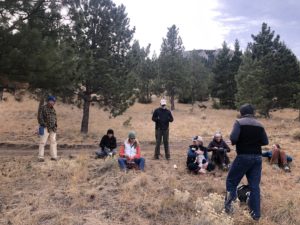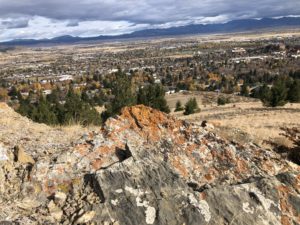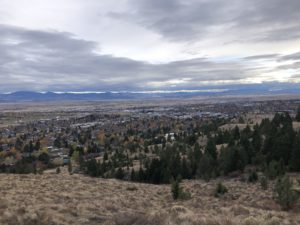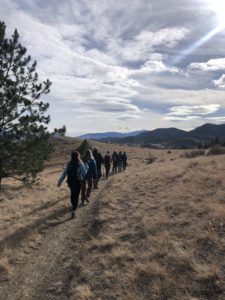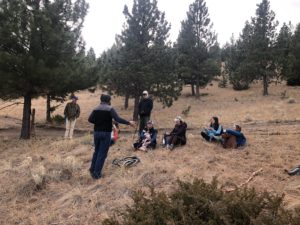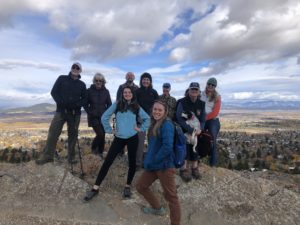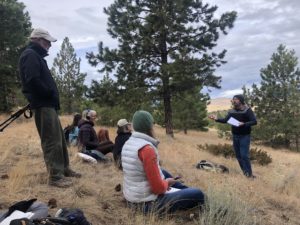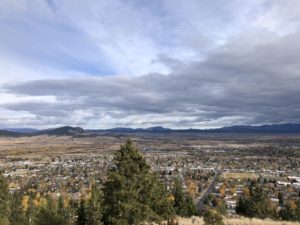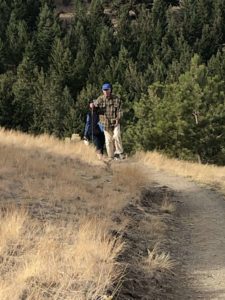[et_pb_section fb_built=”1″ _builder_version=”4.16″ custom_padding=”0|0px|13px|0px|false|false” global_colors_info=”{}” da_is_popup=”off” da_exit_intent=”off” da_has_close=”on” da_alt_close=”off” da_dark_close=”off” da_not_modal=”on” da_is_singular=”off” da_with_loader=”off” da_has_shadow=”on” da_disable_devices=”off|off|off”][et_pb_row _builder_version=”4.16″ background_size=”initial” background_position=”top_left” background_repeat=”repeat” global_colors_info=”{}”][et_pb_column type=”4_4″ _builder_version=”4.16″ custom_padding=”|||” global_colors_info=”{}” custom_padding__hover=”|||”][et_pb_image src=”https://originalsite.merlinccc.com/wp-content/uploads/2021/10/IMG_5377_Quirky-Virtues-Walk-2021-scaled.jpg” title_text=”IMG_5377_Quirky Virtues Walk 2021″ _builder_version=”4.16″ _module_preset=”default” global_colors_info=”{}”][/et_pb_image][/et_pb_column][/et_pb_row][et_pb_row _builder_version=”4.16″ background_size=”initial” background_position=”top_left” background_repeat=”repeat” global_colors_info=”{}”][et_pb_column type=”4_4″ _builder_version=”4.16″ custom_padding=”|||” global_colors_info=”{}” custom_padding__hover=”|||”][et_pb_text admin_label=”About the Walk” _builder_version=”4.16″ z_index_tablet=”500″ box_shadow_horizontal_tablet=”0px” box_shadow_vertical_tablet=”0px” box_shadow_blur_tablet=”40px” box_shadow_spread_tablet=”0px” global_colors_info=”{}”]
In this walk we explored virtues — quirky and otherwise, old & modern — from the perspective of Aristotle. Aristotle tells us that every virtue is both a midpoint between a pair of opposed vices, and also a pinnacle of excellence. In this walk, we’ll explore this particular account of virtue: first to understand it, and then to see what it can teach us about virtue in contemporary life and thought.
We started our walk by examining courage — a virtue where contemporary thinking lines up pretty closely with Aristotle’s view of virtue. Here, our goal was to use familiar examples to “think ourselves into” Aristotle’s worldview.
With that foundation in place, at the next two stops, we looked at some virtues that are harder to make sense of, namely magnanimity (at our second stop) and authenticity (at our third).
Magnanimity or “great souledness” is a virtue that Aristotle found to be quote intriguing. Aristotle defines this as “thinking that you are worthy of great things, when you really are worthy of them.” This might sound odd to modern ears. How on earth is that a balanced midpoint, or a praiseworthy sort of character? We used this unfamiliar example as a tool to gain a deeper understanding of the nuances of Aristotle’s theory, and of how that theory might challenge or present an alternative to contemporary beliefs and attitudes.
At our third stop, we took the opposite approach by looking things which modern people might think of as obvious virtues, but which Aristotle might have a hard time fitting into his account. After some deliberation, we ended up looking at “authenticity.” As we tried to figure out what Aristotle would say about this (especially since it, and other “virtues” more commonplace to now, were never addressed in his writings), we developed our own ability to “think along with” ancient philosophers, as part of a living conversation.
[/et_pb_text][/et_pb_column][/et_pb_row][et_pb_row _builder_version=”4.16″ background_size=”initial” background_position=”top_left” background_repeat=”repeat” custom_padding=”0|0px|15.7969px|0px|false|false” global_colors_info=”{}”][et_pb_column type=”4_4″ _builder_version=”4.16″ custom_padding=”|||” global_colors_info=”{}” custom_padding__hover=”|||”][et_pb_divider color=”#02a2c8″ divider_weight=”15″ _builder_version=”4.16″ height=”15px” box_shadow_style=”preset1″ global_colors_info=”{}”] [/et_pb_divider][/et_pb_column][/et_pb_row][et_pb_row _builder_version=”4.16″ global_colors_info=”{}”][et_pb_column type=”4_4″ _builder_version=”4.16″ global_colors_info=”{}”][et_pb_testimonial admin_label=”Audio Recordings ” _builder_version=”4.16″ z_index_tablet=”500″ author_text_shadow_horizontal_length_tablet=”0px” author_text_shadow_vertical_length_tablet=”0px” author_text_shadow_blur_strength_tablet=”1px” position_text_shadow_horizontal_length_tablet=”0px” position_text_shadow_vertical_length_tablet=”0px” position_text_shadow_blur_strength_tablet=”1px” company_text_shadow_horizontal_length_tablet=”0px” company_text_shadow_vertical_length_tablet=”0px” company_text_shadow_blur_strength_tablet=”1px” body_link_text_shadow_horizontal_length_tablet=”0px” body_link_text_shadow_vertical_length_tablet=”0px” body_link_text_shadow_blur_strength_tablet=”1px” body_ul_text_shadow_horizontal_length_tablet=”0px” body_ul_text_shadow_vertical_length_tablet=”0px” body_ul_text_shadow_blur_strength_tablet=”1px” body_ol_text_shadow_horizontal_length_tablet=”0px” body_ol_text_shadow_vertical_length_tablet=”0px” body_ol_text_shadow_blur_strength_tablet=”1px” body_quote_text_shadow_horizontal_length_tablet=”0px” body_quote_text_shadow_vertical_length_tablet=”0px” body_quote_text_shadow_blur_strength_tablet=”1px” box_shadow_horizontal_tablet=”0px” box_shadow_vertical_tablet=”0px” box_shadow_blur_tablet=”40px” box_shadow_spread_tablet=”0px” box_shadow_horizontal_image_tablet=”0px” box_shadow_vertical_image_tablet=”0px” box_shadow_blur_image_tablet=”40px” box_shadow_spread_image_tablet=”0px” global_colors_info=”{}”]
Audio Recordings
[/et_pb_testimonial][et_pb_text _builder_version=”4.16″ text_orientation=”center” global_colors_info=”{}”]
Introductory Discussion
Stop 1: Courage
Stop 2: Magnanimity
Stop 3: Authenticity
[/et_pb_text][/et_pb_column][/et_pb_row][et_pb_row _builder_version=”4.16″ global_colors_info=”{}”][et_pb_column type=”4_4″ _builder_version=”4.16″ global_colors_info=”{}”][et_pb_testimonial admin_label=”Photos ” _builder_version=”4.16″ z_index_tablet=”500″ author_text_shadow_horizontal_length_tablet=”0px” author_text_shadow_vertical_length_tablet=”0px” author_text_shadow_blur_strength_tablet=”1px” position_text_shadow_horizontal_length_tablet=”0px” position_text_shadow_vertical_length_tablet=”0px” position_text_shadow_blur_strength_tablet=”1px” company_text_shadow_horizontal_length_tablet=”0px” company_text_shadow_vertical_length_tablet=”0px” company_text_shadow_blur_strength_tablet=”1px” body_link_text_shadow_horizontal_length_tablet=”0px” body_link_text_shadow_vertical_length_tablet=”0px” body_link_text_shadow_blur_strength_tablet=”1px” body_ul_text_shadow_horizontal_length_tablet=”0px” body_ul_text_shadow_vertical_length_tablet=”0px” body_ul_text_shadow_blur_strength_tablet=”1px” body_ol_text_shadow_horizontal_length_tablet=”0px” body_ol_text_shadow_vertical_length_tablet=”0px” body_ol_text_shadow_blur_strength_tablet=”1px” body_quote_text_shadow_horizontal_length_tablet=”0px” body_quote_text_shadow_vertical_length_tablet=”0px” body_quote_text_shadow_blur_strength_tablet=”1px” box_shadow_horizontal_tablet=”0px” box_shadow_vertical_tablet=”0px” box_shadow_blur_tablet=”40px” box_shadow_spread_tablet=”0px” box_shadow_horizontal_image_tablet=”0px” box_shadow_vertical_image_tablet=”0px” box_shadow_blur_image_tablet=”40px” box_shadow_spread_image_tablet=”0px” global_colors_info=”{}”]
Photos
[/et_pb_testimonial][et_pb_text _builder_version=”4.16″ _module_preset=”default” global_colors_info=”{}”]
[/et_pb_text][/et_pb_column][/et_pb_row][/et_pb_section][et_pb_section fb_built=”1″ _builder_version=”4.16″ _module_preset=”default” global_colors_info=”{}” da_is_popup=”off” da_exit_intent=”off” da_has_close=”on” da_alt_close=”off” da_dark_close=”off” da_not_modal=”on” da_is_singular=”off” da_with_loader=”off” da_has_shadow=”on” da_disable_devices=”off|off|off”][et_pb_row _builder_version=”4.16″ _module_preset=”default” global_colors_info=”{}”][et_pb_column type=”4_4″ _builder_version=”4.16″ _module_preset=”default” global_colors_info=”{}”][et_pb_testimonial admin_label=”Resources ” _builder_version=”4.16″ z_index_tablet=”500″ author_text_shadow_horizontal_length_tablet=”0px” author_text_shadow_vertical_length_tablet=”0px” author_text_shadow_blur_strength_tablet=”1px” position_text_shadow_horizontal_length_tablet=”0px” position_text_shadow_vertical_length_tablet=”0px” position_text_shadow_blur_strength_tablet=”1px” company_text_shadow_horizontal_length_tablet=”0px” company_text_shadow_vertical_length_tablet=”0px” company_text_shadow_blur_strength_tablet=”1px” body_link_text_shadow_horizontal_length_tablet=”0px” body_link_text_shadow_vertical_length_tablet=”0px” body_link_text_shadow_blur_strength_tablet=”1px” body_ul_text_shadow_horizontal_length_tablet=”0px” body_ul_text_shadow_vertical_length_tablet=”0px” body_ul_text_shadow_blur_strength_tablet=”1px” body_ol_text_shadow_horizontal_length_tablet=”0px” body_ol_text_shadow_vertical_length_tablet=”0px” body_ol_text_shadow_blur_strength_tablet=”1px” body_quote_text_shadow_horizontal_length_tablet=”0px” body_quote_text_shadow_vertical_length_tablet=”0px” body_quote_text_shadow_blur_strength_tablet=”1px” box_shadow_horizontal_tablet=”0px” box_shadow_vertical_tablet=”0px” box_shadow_blur_tablet=”40px” box_shadow_spread_tablet=”0px” box_shadow_horizontal_image_tablet=”0px” box_shadow_vertical_image_tablet=”0px” box_shadow_blur_image_tablet=”40px” box_shadow_spread_image_tablet=”0px” global_colors_info=”{}”]
Resources
[/et_pb_testimonial][et_pb_text _builder_version=”4.16″ _module_preset=”default” global_colors_info=”{}”]
Nichomachean Ethics
Aristotle’s discussion of the “virtues of character”—also known as the “ethical” virtues, or those formed by habit—spans books III to V of his Nicomachean Ethics. This follows some more generic considerations about virtue in book II.
- Aristotle discusses courage (a.k.a. fortitude) in Nicomachean Ethics book III, chapters 6-9.
- Magnanimity is in book IV, chapter 3.
There are many, many different translations available. The excellent version by Thomas Taylor, first published in 1818, is available as a free PDF here.
Exercise: Actions of Persons vs. Character of Persons
During the walk, we noted that the conversation around courage quickly slipped into an examination of actions, rather than the character of persons, whereas in the second stop, we stayed much more focused on the character of the magnanimous person.
As an interesting exercise, you might consider going back over our discussion of courage (either on your own, or with the help of what Aristotle writes in book III), and asking the questions:
- How can we reframe the important issues that we raised, in terms of character?
- What aspects of the problem become more, or less, prominent when we shift our focus in this way?
[/et_pb_text][/et_pb_column][/et_pb_row][/et_pb_section][et_pb_section fb_built=”1″ _builder_version=”4.16″ _module_preset=”default” custom_padding=”0px|||||” global_colors_info=”{}” da_is_popup=”off” da_exit_intent=”off” da_has_close=”on” da_alt_close=”off” da_dark_close=”off” da_not_modal=”on” da_is_singular=”off” da_with_loader=”off” da_has_shadow=”on” da_disable_devices=”off|off|off”][et_pb_row _builder_version=”4.16″ _module_preset=”default” global_colors_info=”{}”][et_pb_column type=”4_4″ _builder_version=”4.16″ _module_preset=”default” global_colors_info=”{}”][et_pb_testimonial admin_label=”About Our Workshop Leader ” _builder_version=”4.16″ z_index_tablet=”500″ author_text_shadow_horizontal_length_tablet=”0px” author_text_shadow_vertical_length_tablet=”0px” author_text_shadow_blur_strength_tablet=”1px” position_text_shadow_horizontal_length_tablet=”0px” position_text_shadow_vertical_length_tablet=”0px” position_text_shadow_blur_strength_tablet=”1px” company_text_shadow_horizontal_length_tablet=”0px” company_text_shadow_vertical_length_tablet=”0px” company_text_shadow_blur_strength_tablet=”1px” body_link_text_shadow_horizontal_length_tablet=”0px” body_link_text_shadow_vertical_length_tablet=”0px” body_link_text_shadow_blur_strength_tablet=”1px” body_ul_text_shadow_horizontal_length_tablet=”0px” body_ul_text_shadow_vertical_length_tablet=”0px” body_ul_text_shadow_blur_strength_tablet=”1px” body_ol_text_shadow_horizontal_length_tablet=”0px” body_ol_text_shadow_vertical_length_tablet=”0px” body_ol_text_shadow_blur_strength_tablet=”1px” body_quote_text_shadow_horizontal_length_tablet=”0px” body_quote_text_shadow_vertical_length_tablet=”0px” body_quote_text_shadow_blur_strength_tablet=”1px” box_shadow_horizontal_tablet=”0px” box_shadow_vertical_tablet=”0px” box_shadow_blur_tablet=”40px” box_shadow_spread_tablet=”0px” box_shadow_horizontal_image_tablet=”0px” box_shadow_vertical_image_tablet=”0px” box_shadow_blur_image_tablet=”40px” box_shadow_spread_image_tablet=”0px” global_colors_info=”{}”]
About Our Walk Leader
[/et_pb_testimonial][/et_pb_column][/et_pb_row][et_pb_row column_structure=”2_5,3_5″ _builder_version=”4.16″ _module_preset=”default” global_colors_info=”{}”][et_pb_column type=”2_5″ _builder_version=”4.16″ _module_preset=”default” global_colors_info=”{}”][et_pb_image src=”https://originalsite.merlinccc.com/wp-content/uploads/2019/09/IMG_2350-scaled.jpeg” title_text=”IMG_2350 – David” _builder_version=”4.16″ _module_preset=”default” global_colors_info=”{}”][/et_pb_image][/et_pb_column][et_pb_column type=”3_5″ _builder_version=”4.16″ _module_preset=”default” global_colors_info=”{}”][et_pb_text _builder_version=”4.16″ _module_preset=”default” global_colors_info=”{}”]
David Nowakowski is as a philosopher and educator in the Helena area whose professional work is dedicated to helping people of all ages and backgrounds access, understand, and apply the traditions of ancient philosophy to their own lives. David began studying ancient philosophies and classical languages in 2001, and has continued ever since. A scholar of the philosophical traditions of the ancient Mediterranean (Greece, Rome, and North Africa) and of the Indian subcontinent, reading Sanskrit, Latin, and classical Greek, he earned his Ph.D. in philosophy from Princeton University in 2014. His work has appeared in a variety of scholarly journals, including Philosophy East & West, Asian Philosophy, and the Journal of Indian Philosophy; as well as in presentations to academic audiences at Harvard, Columbia University, the University of Toronto, Yale-NUS College in Singapore, and elsewhere. After half a decade teaching at liberal arts colleges in the northeast, David chose to leave the academy in order to focus his energies on the transformative value of these ancient philosophical and spiritual traditions in his own life and practice, and on building new systems of education and community learning that will make this rich heritage alive and available to others.
[/et_pb_text][/et_pb_column][/et_pb_row][et_pb_row _builder_version=”4.16″ background_size=”initial” background_position=”top_left” background_repeat=”repeat” custom_padding=”23px|0px|0|0px|false|false” global_colors_info=”{}”][et_pb_column type=”4_4″ _builder_version=”4.16″ custom_padding=”|||” global_colors_info=”{}” custom_padding__hover=”|||”][et_pb_divider color=”#02a2c8″ divider_weight=”15px” _builder_version=”4.16″ height=”15px” z_index_tablet=”500″ box_shadow_style=”preset1″ global_colors_info=”{}”][/et_pb_divider][/et_pb_column][/et_pb_row][/et_pb_section][et_pb_section fb_built=”1″ _builder_version=”4.16″ custom_padding=”1px|||||” global_colors_info=”{}” da_is_popup=”off” da_exit_intent=”off” da_has_close=”on” da_alt_close=”off” da_dark_close=”off” da_not_modal=”on” da_is_singular=”off” da_with_loader=”off” da_has_shadow=”on” da_disable_devices=”off|off|off”][et_pb_row _builder_version=”4.16″ background_size=”initial” background_position=”top_left” background_repeat=”repeat” global_colors_info=”{}”][et_pb_column type=”4_4″ _builder_version=”4.16″ custom_padding=”|||” global_colors_info=”{}” custom_padding__hover=”|||”][et_pb_testimonial _builder_version=”4.16″ z_index_tablet=”500″ author_text_shadow_horizontal_length_tablet=”0px” author_text_shadow_vertical_length_tablet=”0px” author_text_shadow_blur_strength_tablet=”1px” position_text_shadow_horizontal_length_tablet=”0px” position_text_shadow_vertical_length_tablet=”0px” position_text_shadow_blur_strength_tablet=”1px” company_text_shadow_horizontal_length_tablet=”0px” company_text_shadow_vertical_length_tablet=”0px” company_text_shadow_blur_strength_tablet=”1px” body_link_text_shadow_horizontal_length_tablet=”0px” body_link_text_shadow_vertical_length_tablet=”0px” body_link_text_shadow_blur_strength_tablet=”1px” body_ul_text_shadow_horizontal_length_tablet=”0px” body_ul_text_shadow_vertical_length_tablet=”0px” body_ul_text_shadow_blur_strength_tablet=”1px” body_ol_text_shadow_horizontal_length_tablet=”0px” body_ol_text_shadow_vertical_length_tablet=”0px” body_ol_text_shadow_blur_strength_tablet=”1px” body_quote_text_shadow_horizontal_length_tablet=”0px” body_quote_text_shadow_vertical_length_tablet=”0px” body_quote_text_shadow_blur_strength_tablet=”1px” box_shadow_horizontal_tablet=”0px” box_shadow_vertical_tablet=”0px” box_shadow_blur_tablet=”40px” box_shadow_spread_tablet=”0px” box_shadow_horizontal_image_tablet=”0px” box_shadow_vertical_image_tablet=”0px” box_shadow_blur_image_tablet=”40px” box_shadow_spread_image_tablet=”0px” global_colors_info=”{}”]
Thank You’s
[/et_pb_testimonial][/et_pb_column][/et_pb_row][et_pb_row _builder_version=”4.16″ background_size=”initial” background_position=”top_left” background_repeat=”repeat” global_colors_info=”{}”][et_pb_column type=”4_4″ _builder_version=”4.16″ custom_padding=”|||” global_colors_info=”{}” custom_padding__hover=”|||”][et_pb_image src=”https://originalsite.merlinccc.com/wp-content/uploads/2021/09/Quirky-Virtues_FI2.png” title_text=”Quirky Virtues_FI2″ _builder_version=”4.16″ global_colors_info=”{}”][/et_pb_image][et_pb_text _builder_version=”4.16″ custom_margin=”||29px|||” z_index_tablet=”500″ box_shadow_horizontal_tablet=”0px” box_shadow_vertical_tablet=”0px” box_shadow_blur_tablet=”40px” box_shadow_spread_tablet=”0px” global_colors_info=”{}”]
Thank you to our generous community donors for helping to philosophy in the community programs like these possible, to our walk guide — David — for leading us through our discussions, and to our delightful walk participants who generated great questions and insights. Thank you also to Ross P. Nelson for your help with audio editing.
[/et_pb_text][et_pb_divider color=”#02a2c8″ divider_weight=”15″ _builder_version=”4.16″ height=”15px” custom_margin=”14px|||||” custom_padding=”||3px|||” z_index_tablet=”500″ box_shadow_style=”preset1″ global_colors_info=”{}”][/et_pb_divider][/et_pb_column][/et_pb_row][/et_pb_section]

